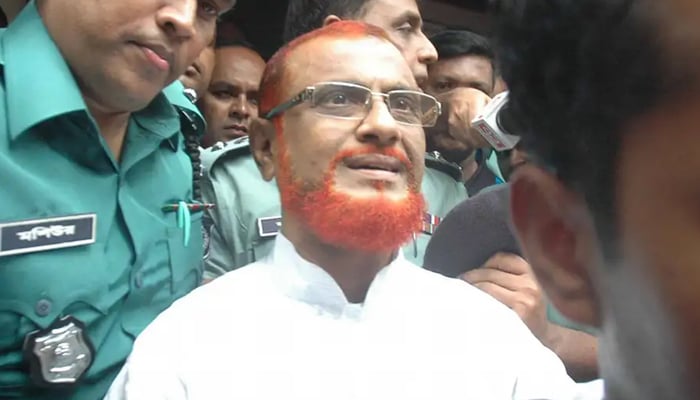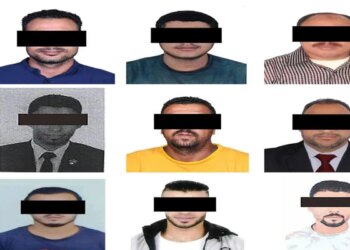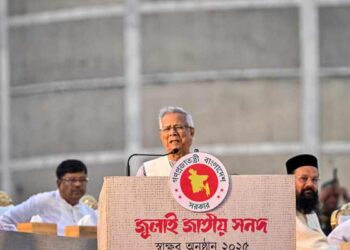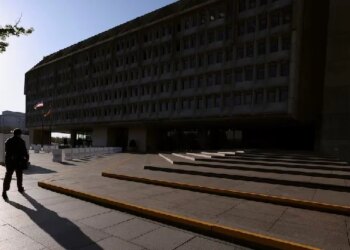Select Language:
A.T.M. Azharul Islam’s Conviction Overturned
Image Caption: A.T.M. Azharul Islam. — Xinhua/File
- Islam’s attorney, Shishir Monir, describes him as “fortunate.”
- Five other leaders sentenced during Hasina’s administration have been executed.
- "He received justice because he is alive," remarks the lawyer.
On Tuesday, Bangladesh’s Supreme Court overturned the conviction of A.T.M. Azharul Islam, a prominent figure in the country’s primary right-wing political faction, Jamaat-e-Islami. He had been on death row due to a conviction rendered under the previous regime, which fell from power last year.
Islam, who has been incarcerated since 2012, was exonerated of charges related to crimes against humanity by the Supreme Court, resulting in his immediate release.
Born in 1952, Islam was one of six senior political figures found guilty during the tenure of Sheikh Hasina, whose 15-year rule as prime minister came to an abrupt end in August 2024 following a revolt led by students.
As political parties gear up for eagerly awaited elections, the interim government has committed to holding them by June 2026 at the latest.
Islam’s lawyer, Shishir Monir, stated that Islam was "fortunate" because the five other senior leaders convicted—four from Jamaat-e-Islami and one from the Bangladesh National Party (BNP)—have already been executed.
"He received justice because he is still alive," Monir told the press, adding that the appellate division had not adequately reviewed evidence in the other cases involving crimes against humanity.
Islam was sentenced to death in 2014 for charges of rape, murder, and genocide during the Bangladesh Liberation War in 1971.
A Historic Rivalry
Jamaat-e-Islami was a political rival of Hasina’s father, Sheikh Mujibur Rahman, who is recognized as the founding leader of Bangladesh. During her administration, Hasina banned the Jamaat-e-Islami party and heavily persecuted its leaders.
Islam had filed an appeal in 2015, but the court upheld the initial verdict in 2019. He submitted another petition for review in 2020. After fleeing to India last year amidst mass protests that stormed her palace, Hasina remains in self-imposed exile, with her Awami League party now banned.
Despite a request from Dhaka for Hasina’s extradition to face charges of crimes against humanity for a crackdown that resulted in the deaths of at least 1,400 protesters, she has resisted returning.
With Hasina out of the picture, Islam’s legal team submitted another appeal on February 27, which led to Tuesday’s ruling by the full bench, headed by Chief Justice Syed Refaat Ahmed.
The supporters of Jamaat-e-Islami were jubilant. Leader Shafiqur Rahman remarked that the party would also remember those who were executed, describing them as victims of judicial killings.
"If they were alive today, they could have steered the country in the right direction. Their contributions to the nation will never be forgotten," he asserted.
As political factions vie for control, opponents of Jamaat-e-Islami continue to scrutinize its historical involvement. Rahman, addressing potential mistakes, stated, "We, as individuals and as a party, can err," although he did not elaborate and declined to answer further questions. "We seek your pardon if we have done anything wrong."







